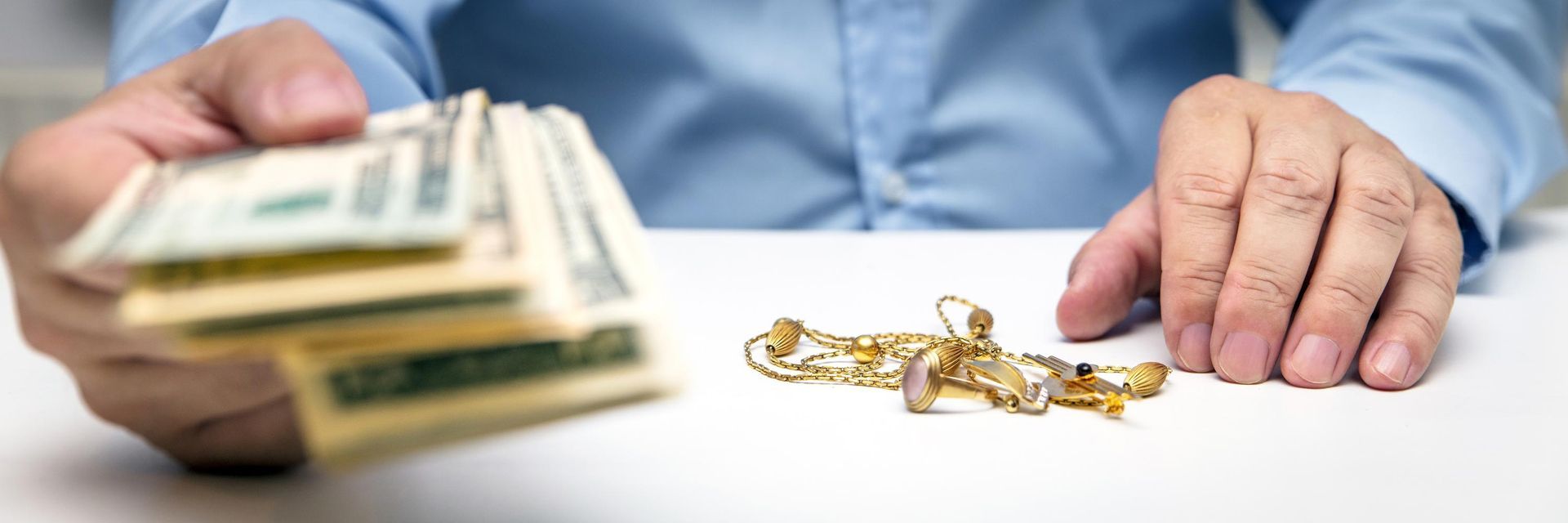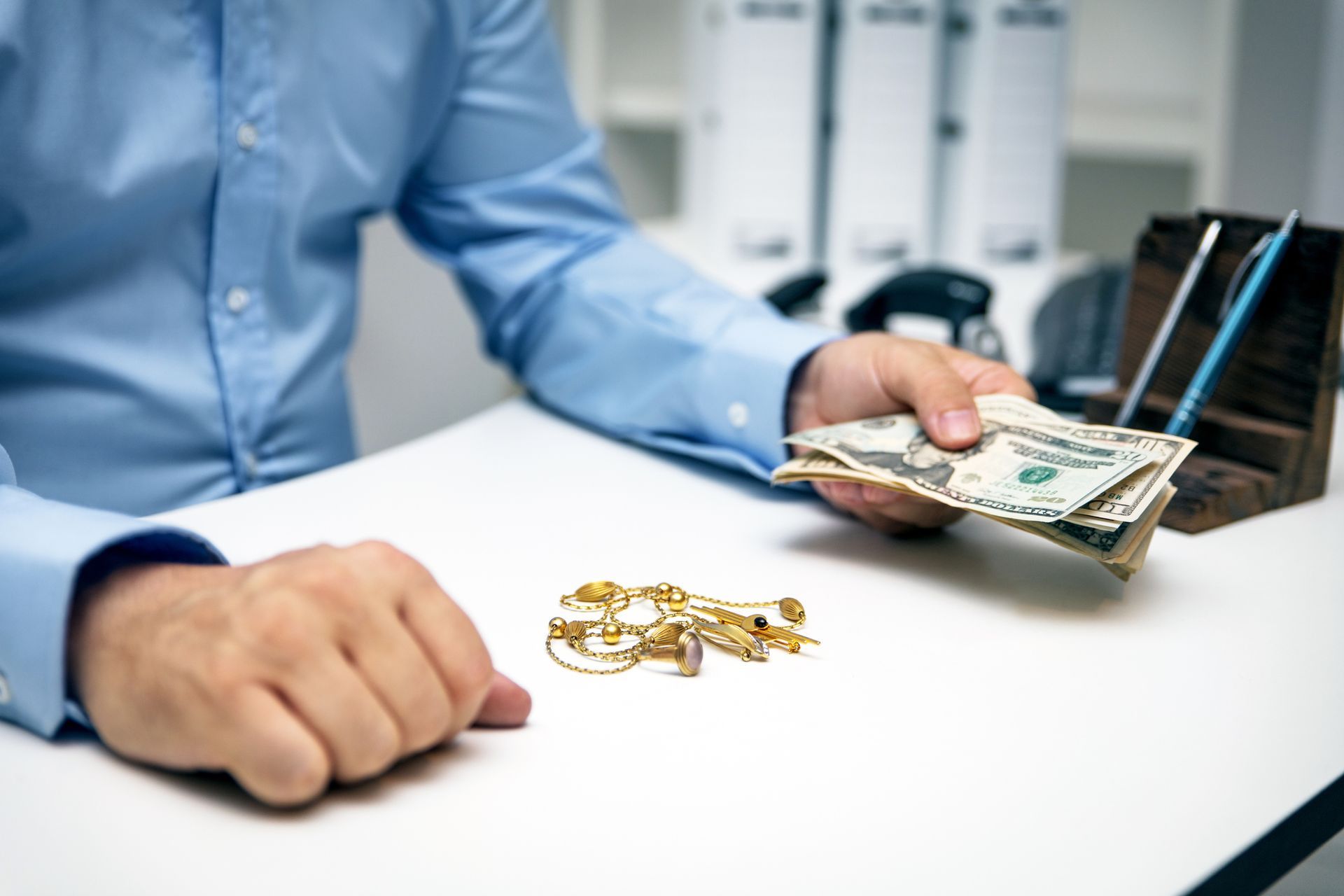Bring Home More Money After Selling To A Pawn Shop
- By Admin
- •
- 10 Aug, 2019
- •

Pawn shops pay for in-demand items that are in decent condition, but how much you can bring home from selling goods to these stores depends on many variables. Here are some tips to help you bring home the maximum possible amount when selling to pawn shops.
Choose a Pawn Shop Located Near You
First, choose a suitable pawn shop that's located near you. This may not be the closest pawn shop if you're selling a high-value specialty item, but it will likely be if you're selling common goods.
Unless there's a specific reason to drive to a more distant pawn shop, you'll probably just end up spending more on gas. By staying in the area, you won't have to spend any of the money you receive from a pawn shop at the gas station on the way home. This doesn't affect what you actually receive for the items, but it does impact how much money you keep.
Unless there's a specific reason to drive to a more distant pawn shop, you'll probably just end up spending more on gas. By staying in the area, you won't have to spend any of the money you receive from a pawn shop at the gas station on the way home. This doesn't affect what you actually receive for the items, but it does impact how much money you keep.
Consider a Specialty Pawn Shop for High-Value Items
Second, if you are selling specialty items that have a high value, such as firearms or collectible coins, check for a pawn shop that's relatively close and specializes in the types of goods that you have.
While any pawn shop may purchase high-value items from you, a specialty pawn shop can better evaluate the item's true value because the store's employees have more expertise. The store can also probably sell your goods faster because people come to this store for these kinds of items. These two factors often result in a higher offer from a specialty shop.
This is the one time when it might make sense to drive a little farther to a specific pawn shop, but sometimes determining whether paying for the extra gas is difficult.
If you're unsure whether you should drive to the nearest pawn shop or go to a specialty one, call the specialty shop and see how much interest they have in your goods. They won't be able to provide an exact quote over the phone, but they can likely tell you whether they want to take a look or already have too many of those items.
While any pawn shop may purchase high-value items from you, a specialty pawn shop can better evaluate the item's true value because the store's employees have more expertise. The store can also probably sell your goods faster because people come to this store for these kinds of items. These two factors often result in a higher offer from a specialty shop.
This is the one time when it might make sense to drive a little farther to a specific pawn shop, but sometimes determining whether paying for the extra gas is difficult.
If you're unsure whether you should drive to the nearest pawn shop or go to a specialty one, call the specialty shop and see how much interest they have in your goods. They won't be able to provide an exact quote over the phone, but they can likely tell you whether they want to take a look or already have too many of those items.
Bring All Your Sellable Items at Once
Third, wait to go to the pawn shop until you've gathered up everything you want to sell. Rather than bringing each item by itself, take a load of goods so that you can save on gas. This won't impact how much you ultimately get for the goods, but it will keep your fuel costs as low as possible.
While fuel costs may seem minimal, they can add up if you have several items to sell. For example, assume that the drive to a pawn shop and back costs you only $1 in fuel. This is what a round-trip drive to a nearby pawn shop would cost if your vehicle gets 25 miles per gallon, fuel costs $2.50 per gallon and the store is 5 miles away.
Also, assume you have five items that will each sell for an average of $10. If you were to take these items individually, you would spend $5 on fuel -- or 10 percent of the $50 that the collection of goods was worth. With a single trip, you can spend only $1 on fuel. That's only 2 percent of what the store pays for the goods.
While fuel costs may seem minimal, they can add up if you have several items to sell. For example, assume that the drive to a pawn shop and back costs you only $1 in fuel. This is what a round-trip drive to a nearby pawn shop would cost if your vehicle gets 25 miles per gallon, fuel costs $2.50 per gallon and the store is 5 miles away.
Also, assume you have five items that will each sell for an average of $10. If you were to take these items individually, you would spend $5 on fuel -- or 10 percent of the $50 that the collection of goods was worth. With a single trip, you can spend only $1 on fuel. That's only 2 percent of what the store pays for the goods.
Clean Everything You Take to Sell
Whenever you sell something, the item should be displayed in its best possible light. That includes making sure it's clean. Dust or wash your goods as is necessary so that they'll look good when a pawn shop employee inspects them.
If you have items to sell at a pawn shop, bring them to 2J's Pawn & Gun.
If you have items to sell at a pawn shop, bring them to 2J's Pawn & Gun.
If you're a gun collector or enthusiast, then you know that finding rare and collectible guns can be daunting. Read about how to find them at pawn shops.
Are you in need of some quick cash and considering selling your watch to a pawn shop? Read this blog for tips for a successful transaction.
Have you ever considered selling your jewelry to a pawnshop? Discover three things you can do to your jewelry before you sell it to a pawn shop.
Pawnshops are a great place to snag an excellent bargain. What guarantees should pawnshop customers expect from reputable pawnshops? Read on to learn more.
Often, customers can negotiate with pawn shop owners to get a lower price. Learn some ways to negotiate at a pawn shop and save money.
Do you wonder what things you can sell at a pawn shop? While pawn shops will accept most items, they don’t accept everything. Learn about what you can pawn.









